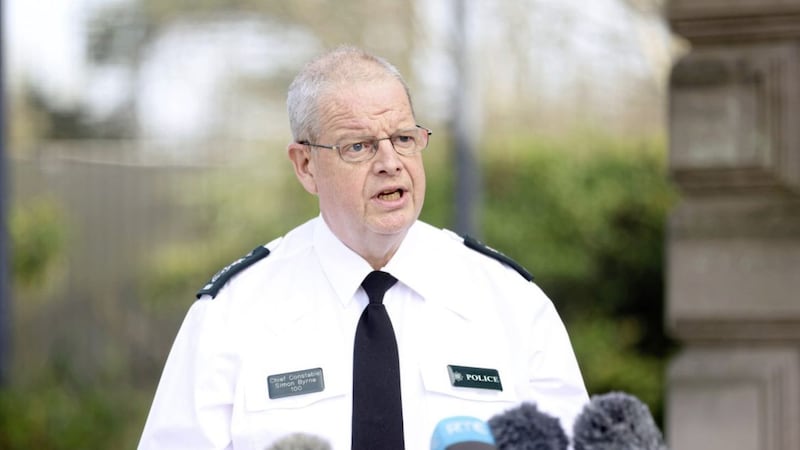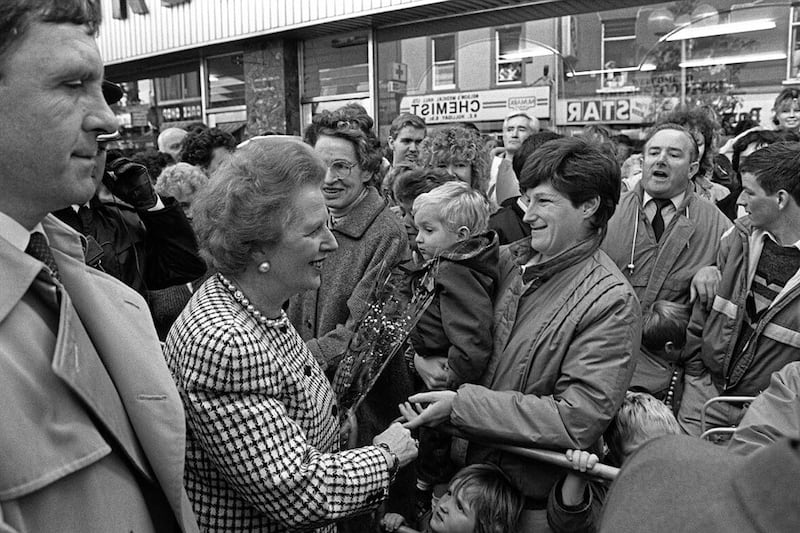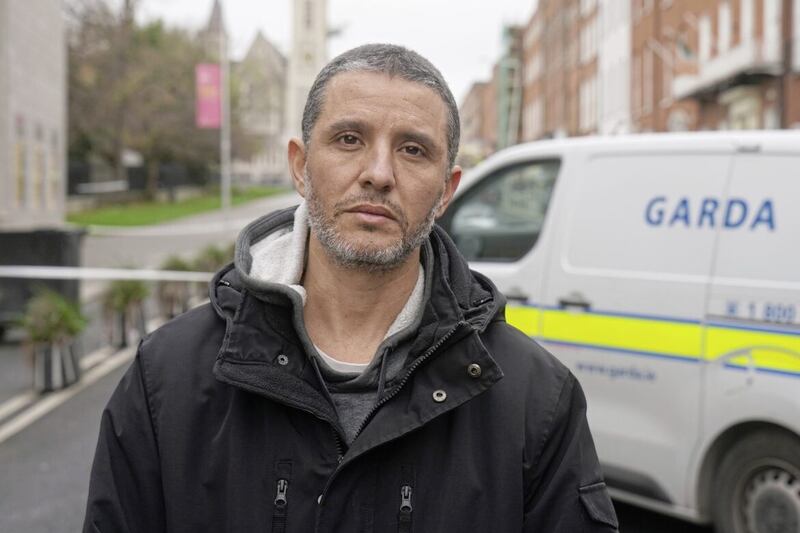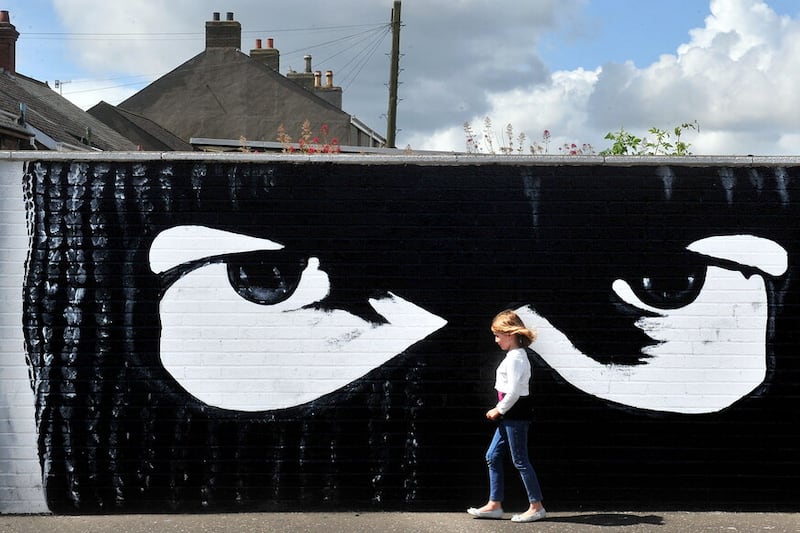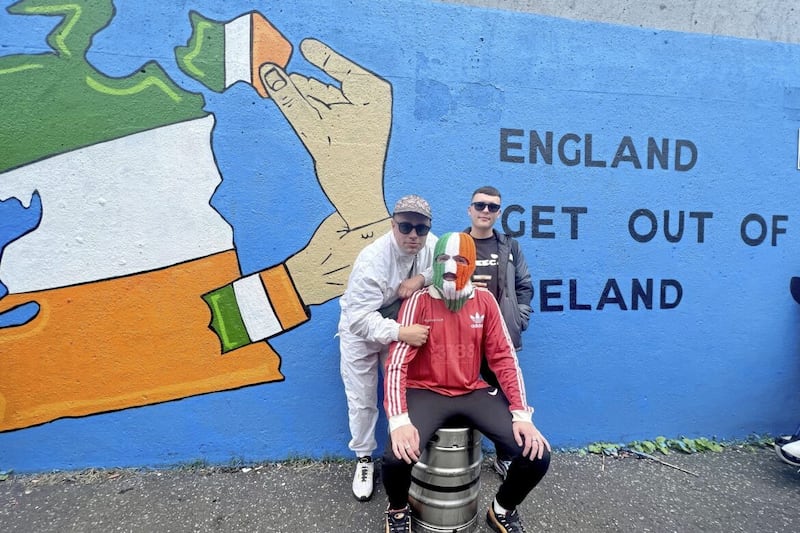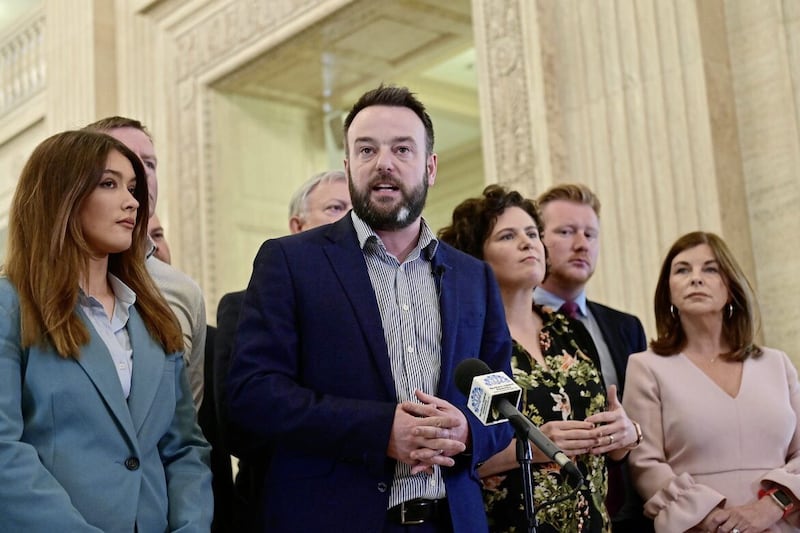At the time of writing Simon Byrne, the Chief Constable of the PSNI, is following a well trodden path for public figures in this basket case of a region. He is battening down and refusing to resign.
He is probably feeling slightly incredulous about some of his detractors.
What loyalist bandsmen, paramilitaries or barrow boy spokespeople think about the leadership of policing in Northern Ireland doesn’t matter a fig or let’s say should not. Policing works by consent. The consent of the wider public - not illegal criminal gangs or for that matter political parties.
Byrne should resign but not because Arlene Foster, Steve Aiken, Jim Allister or Billy Hutchinson demand it. He should resign because he is failing at the job. Since his appointment he has been the least sure-footed police chief since 2001. He has lost the confidence of the community and one suspects his own rank and file.
After posing for and posting a selfie of himself standing in Crossmaglen amongst PSNI officers armed with assault weapons on Christmas Day 2019, Byrne demonstrated just how out of depth he was in Northern Ireland. This was a man appointed by the Policing Board allegedly because of his commitment to policing in the community. Standing with heavily armed officers in South Armagh was not an auspicious start.
In his usual mastery of understatement, Byrne said he recognised the event had caused “some emotion”. Within two weeks he was profusely apologising for the incident.
Before this in a ham-fisted conference speech he appeared to suggest the PSNI would target the children of paramilitaries in their fight against organised criminality. Even the Children’s Commissioner was outraged.
Sinn Féin’s ambivalence towards the PSNI since the death of Martin McGuinness slowly thawed and Michelle O’Neill backed a recruitment campaign for more Catholic officers. Too late to be effective.
Then came the debacle over the PSNI branding - a totally unnecessary move which caused significant anger. This was followed by heavy handed policing of the Black Lives Matter protest.
Covid seemed to swamp the chief constable almost as much as it did the health service. The Storey funeral arrangements may actually finish the chief constable as head of the PSNI but successive police failures in the courts when dealing with paramilitaries were an even greater embarrassment.
The past few months has witnessed Byrne issue apology after apology. He appeared to simultaneously undermine his own officers and offend victims' families following the clumsy arrests at the Sean Graham commemoration. The chief constable doesn’t inspire confidence and his leadership appears invisible.
The Policing Board too has failed in its primary task of holding both him and the police service to account. It needs revamped. It has become little more than a playground for grandstanding politicos. The proposed HM Inspectorate of Constabulary report is little more than a distraction and a fig leaf for the DUP, who are again demanding more than they can deliver.
So Byrne should go.
But when he goes the problems of policing in a divided society won’t go away. Future applicants for the post of chief constable may be few and far between when they witness the intrusive levels of political interference/influence an incumbent police chief faces.
The ongoing issues about lack of accountability in government and the loss of faith in public institutions are worse now than any time before.
The first and deputy first ministers have in different ways undermined public confidence - one through the debacle of RHI and the other by the blatant flouting of Covid restrictions. They set a precedent for not taking responsibility. They created this environment whereby no one resigns for political failure.
Now it seems the upper levels of the civil service is being impacted by partisan political manoeuvring. This threatens its impartiality.
What type of society is left when public institutions are so badly failed by a lack of leadership? And to think Easter is about hope.

